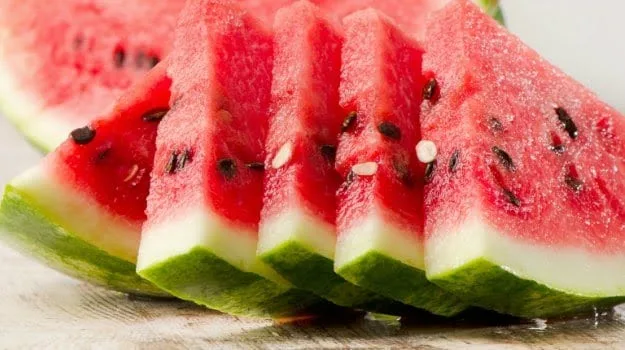Watermelon, a most widely used fruit, has many more benefits than we think. Usually, we are not aware of the benefits we can avail from a simple fruit.
Watermelon contains 82 per cent water, which helps your stomach not to crave food. It is rich in vitamin C, which is beneficial for health.
During the ongoing Holy month of Ramadan, Muslims usually don’t drink much water due to the short period, whether they eat or drink. So, in this case, the best way to stay dehydrated is to add this fruit to your diet during Suhoor and Iftaar.
Watermelon – a Super hydration
Watermelon has high water content i.e. 92 per cent and is packed with essential rehydration salts like magnesium, calcium, sodium and potassium that hydrate you more effectively than water.
Dehydration can seriously cause headaches, fatigue and mood swings, which need to be controlled.
Incorporating watermelon during Ramadan days will keep you hydrated, especially during hot sunny days. If you don’t feel like having the fruit, then you can go for fresh juice.
Low in calories
As far as fruits go, watermelon is one of the lowest in calories – only 46 calories per cup which is even lower than ‘low-sugar’ fruits such as berries. Watermelon is fat-free.
Many people worry about the amount of sugar in watermelon, but that is a bit of a misconception because the sugar content is quite low. While a cup of diced melons has about nine grams of sugar.
Rich in nutrients
Watermelons contain vitamins A and C, B and an important amino acid. It is also high in carotenoids, including beta-carotene and most importantly it is packed with lycopene, the antioxidant pigment that gives the fruit its deep red colour.
Lycopene from watermelon is a super antioxidant that protects all your cells from free radical damage protects your immune system and is easily absorbed into the body.
Healthy for Heart
Watermelon is a heart-healthy food. Some studies suggest that lycopene may have cardiovascular benefits, including reducing the risk of stroke. Also, it improves blood circulation.
Watermelon is rich in antioxidant vitamin C, which protects and repairs vein, artery and heart tissue.
Good for the eyes
The high content of lycopene found in this fruit helps in protecting the eyes against oxidative damage and inflammation.
It may also help in preventing age-related macular degeneration (AMD), which is a common eye problem that can cause blindness in older adults.
Improves digestion
The red melons contain lots of water and a small amount of fibre – both of which are important for healthy digestion.
Eating water-rich fruits like watermelon can be very helpful for promoting normal bowel movements.
